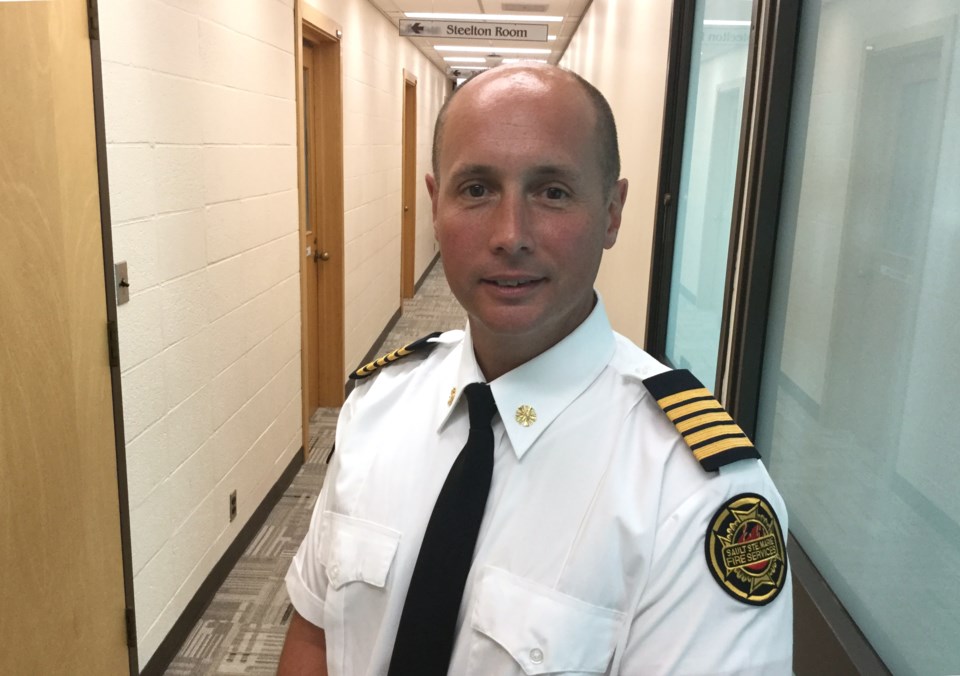Fire Chief Peter Johnson is preparing a bylaw that will charge some property owners almost $1,000 per call for repeated nuisance alarms.
Chief Johnson is recommending billing for false alarms resulting from malfunctioning equipment, malicious calls and tradespeople who monkey with fire alarm systems without notifying the fire department.
Property owners who cause gas leaks without obtaining a locate may also get big bills, as well as operators of illicit drug labs and grow ops.
An initial proposal greenlighted in principle by City Council last week recommends that no charge be levied for first-time fire alarms, but $477 would be charged for second alarms and $954 for third-time offenders.
For natural gas leaks with no locate, $477 would be charged for each truck sent to the scene.
Over the past three years, Johnson says a total of $92,061 could have been saved if the city had a fire services cost recovery bylaw, just from false alarms.
Another $9,063 could have been collected over that time for gas leaks, he said in a written report to councillors.
Chief Johnson's recommendations are a response to a May, 2017 resolution from Ward 3 Councillor Matthew Shoemaker and his Ward 1 colleague Paul Christian, calling for a cost recovery system.
Johnson found other Ontario fire departments also charging for attending motor vehicle collisions that take place on highways, accidents involving non-resident vehicles, and calls involving hazardous materials or fire watch/scene security.
The chief also wants to follow the lead of other municipalities that hire a third party to recover costs from homeowner insurance policies.
"Most insurance policies will pay for reasonable fees or charges against buildings being insured for fire protection services," Johnson said.
"Insurance policies provide coverage for an insured property owner for a number of 'insured perils' and most insurance companies include provisions for fire service expenses in varying amounts that typically range from $1,000 to $5,000."
"It should be noted, that payment to the fire service in no way affects the claim of the individuals who may have suffered a loss. Payments are not deducted from those which are due to the policy-holder," the fire chief said.
Ontario communities doing this include Kitchener, Brockville, Gravenhurst, St. Thomas, Cornwall, Meaford, North Bay, Oshawa and Thunder Bay.
Johnson hopes to save a total of $50,000 to $80,000 a year from these two approaches.
"The recovered funds stay within the fire service budget as revenue or cost recovery in areas such as training and capital purchases: vehicles, apparatus and equipment," he said.
He expects to present a cost recovery bylaw to City Council in the near future.
"The goals and objectives of cost recovery are to be a deterrent to repeat offenders, hence, an accurate estimate for cost recovery for the 2020 budget is difficult to predict until a trend has been established."
"We may see a decline as the program goes out."
Chief Johnson assured councillors that the steep charges won't deter people from calling in actual fires.
